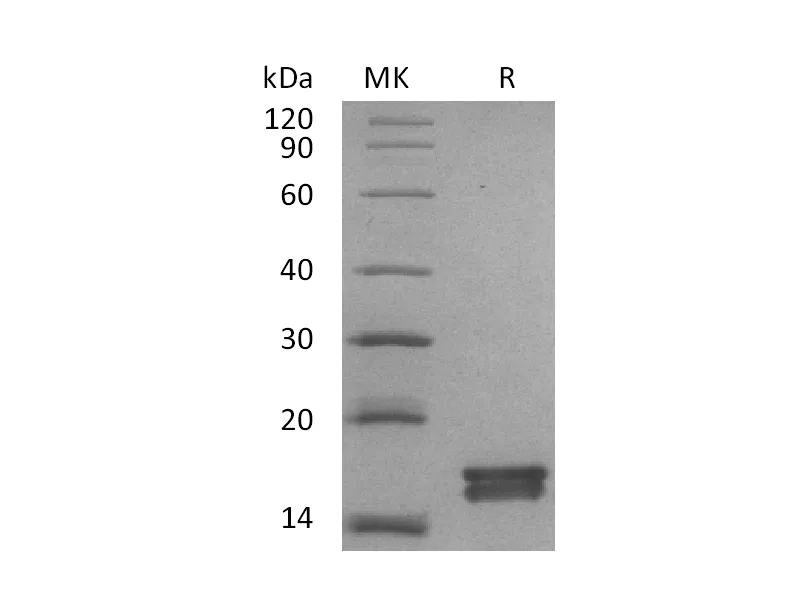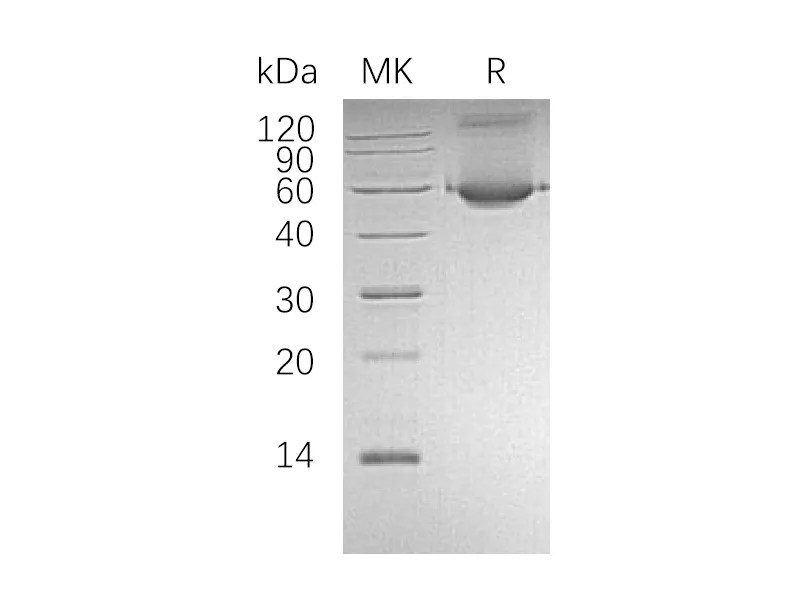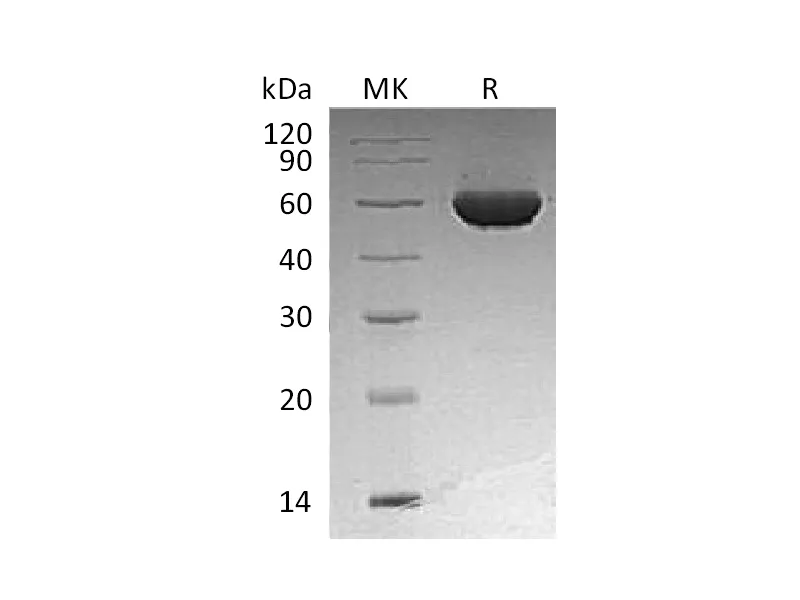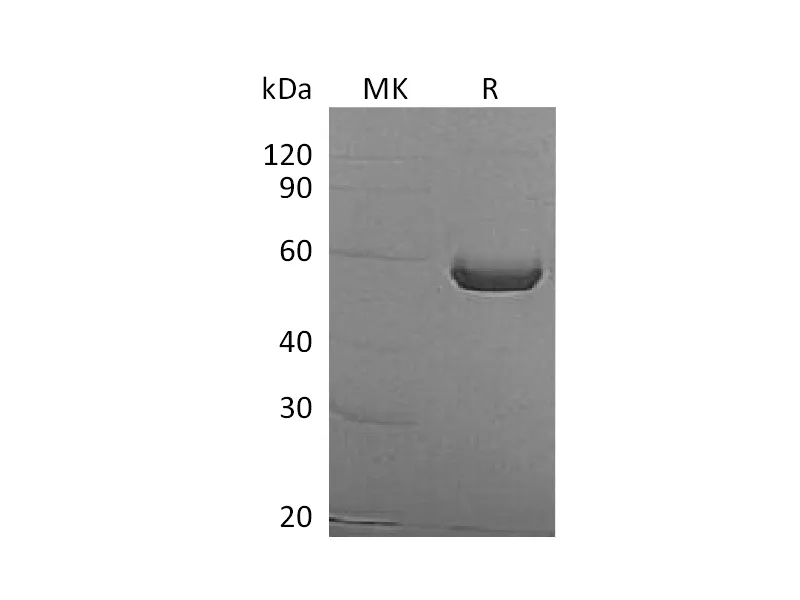Alternative Names
Membrane Cofactor Protein; TLX; Trophoblast Leukocyte Common Antigen; CD46; MCP; MIC10
Background
CD46 is a type I membrane protein containing four Sushi domains. CD46 is expressed by all cells except erythrocytes. CD46 has cofactor activity for inactivation of complement components C3b and C4b by serum factor I, which protects the host cell from damage by complement. It may be involved in the fusion of the spermatozoa with the oocyte during fertilization. CD46 also acts as a costimulatory factor for T-cells which induces the differentiation of CD4+ into T-regulatory 1 cells. T-regulatory 1 cells suppress immune responses by secreting interleukin-10, and therefore are thought to prevent autoimmunity. A number of viral and bacterial pathogens exploit this property and directly induce an immunosuppressive phenotype in T-cells by binding to CD46. CD46 acts as a receptor for the Edmonston strain of measles virus, human herpesvirus-6, and type IV pili of pathogenic Neisseria.
Note
For Research Use Only , Not for Diagnostic Use.




